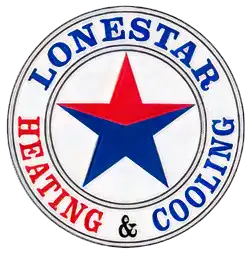Houston’s weather is as diverse as its population, characterized by scorching summers and mild winters that make HVAC systems work overtime. It’s not uncommon for homeowners and business operators to find themselves toggling between the air conditioner (AC) and heater during the fall and even winter months. In this blog post, we’ll delve into the dynamics of this switch, exploring its impact on HVAC systems and discussing crucial maintenance practices to ensure optimal performance. From routine check-ups to air filter replacements, we’ll guide you on the path to keeping your HVAC system in top-notch condition.
Understanding Houston’s Climate
Houston’s climate is unique, posing a challenge for HVAC systems that must contend with both extreme heat and occasional chilly spells. Fall and winter in Houston are notorious for their unpredictability, with temperatures fluctuating between warm and cool, sometimes within the same week. This climatic dance prompts many residents and business owners to switch between heating and cooling systems to maintain a comfortable indoor environment.
The Impact on HVAC Systems
Constantly switching between the AC and heater can take a toll on your HVAC system. The sudden transition from cooling to heating mode (and vice versa) can strain components, potentially leading to increased wear and tear. This wear is exacerbated in a climate like Houston’s, where systems often operate year-round.
Routine Maintenance: The Key to HVAC Longevity
To ensure your HVAC system remains resilient against Houston’s climate extremes, routine maintenance is paramount. Regular check-ups by a professional technician can identify potential issues before they become major problems. This preventive approach not only saves you from costly repairs but also extends the lifespan of your HVAC system.
Changing Air Filters: A Crucial Step
One of the simplest yet most effective ways to maintain your HVAC system is by regularly changing the air filter. In a city like Houston, where HVAC systems work tirelessly, air filters can quickly accumulate dust, debris, and allergens. Clogged filters restrict airflow, making your system work harder to maintain the desired temperature. This extra strain not only decreases efficiency but also contributes to wear on vital components.
Determining the Frequency of Air Filter Changes
The frequency at which you should change your air filter depends on various factors, including the type of filter, the number of occupants in your space, and the overall air quality in your area. As a general guideline, it’s advisable to check your filter every 1-3 months and replace it if it appears dirty or clogged. However, homes with pets or allergy sufferers may require more frequent changes.
Warning Signs: Is Your HVAC System in Trouble?
Being proactive about identifying warning signs can prevent minor issues from escalating into major HVAC problems. Keep an eye out for the following indicators that your system may be in need of repair:
Uneven Heating or Cooling: Identifying the Source of Discrepancies
One of the most noticeable signs that your HVAC system may be facing challenges is the presence of inconsistent temperatures throughout your living or working space. When certain rooms persistently feel warmer or cooler than others, it’s more than just a matter of personal comfort; it could be a red flag indicating an underlying issue with your heating, ventilation, and air conditioning system.
Several factors can contribute to uneven heating or cooling, ranging from ductwork problems to issues with your thermostat. Faulty dampers, for instance, may hinder the balanced distribution of conditioned air, creating hotspots or chilly zones in your home or office. Alternatively, an improperly calibrated thermostat might inaccurately assess the temperature, leading to imbalances in your HVAC system’s performance.
Addressing this concern promptly is crucial to prevent further complications. Hiring a professional HVAC technician to conduct a thorough inspection can help pinpoint the root cause of the temperature disparities. By identifying and rectifying the issue, you not only enhance the comfort of your indoor environment but also ensure the efficient operation of your HVAC system.
Strange Noises: Decoding the Language of Your HVAC System
Your HVAC system communicates with you through the sounds it produces, and any departure from its usual hum may indicate an underlying problem. Unusual sounds such as banging, squealing, or rattling should not be dismissed as mere quirks; instead, they often serve as warning signals that warrant attention.
Banging noises could be indicative of issues with the blower motor or other internal components. This may suggest loose or damaged parts that need immediate inspection and potential replacement. Squealing sounds, on the other hand, might be a sign of a worn-out or slipping belt. Ignoring such noises can lead to further damage and compromise the efficiency of your HVAC system.
Rattling sounds may point to loose components within the system, potentially caused by vibrations during operation. These vibrations can lead to more significant problems if not addressed promptly. In any case, strange noises are a clear indication that your HVAC system is under stress, and seeking professional assistance is crucial to prevent a minor issue from escalating into a major malfunction.
Increased Utility Bills: Unraveling the Mystery of Rising Costs
While utility bills naturally fluctuate with seasonal changes, a sudden and unexplained spike in energy costs can be a cause for concern. Your HVAC system plays a significant role in your energy consumption, and inefficiencies within the system can result in higher-than-expected bills.
Several factors may contribute to increased utility bills, such as a malfunctioning thermostat, clogged air filters, or even a refrigerant leak. These issues force your HVAC system to work harder to maintain the desired temperature, consuming more energy in the process.
To identify the root cause of rising utility costs, it’s advisable to conduct a comprehensive assessment of your HVAC system. A professional technician can perform an energy audit, examining each component to ensure optimal efficiency. By addressing any inefficiencies or malfunctions, you not only save on energy costs but also contribute to the overall longevity of your HVAC system.
Frequent Cycling: Deciphering the Patterns of Your HVAC System
An HVAC system that turns on and off more frequently than usual is exhibiting a behavior known as “short cycling.” This phenomenon can have various causes, all of which require attention to maintain the health and longevity of your system.
Short cycling places a significant strain on your HVAC components, leading to increased wear and tear. It can be caused by issues such as an oversized system, a malfunctioning thermostat, or problems with the system’s sensors. If left unaddressed, short cycling can result in higher energy bills, decreased efficiency, and a reduced lifespan for your HVAC unit.
Understanding the factors contributing to short cycling requires the expertise of a professional technician. They can perform a detailed analysis of your system, checking for issues with the thermostat, verifying the system’s size relative to your space, and ensuring that all sensors are functioning correctly. By resolving the root cause of short cycling, you not only enhance the efficiency of your HVAC system but also extend its operational life.
Poor Air Quality: Navigating the Hazards of Stale Indoor Air
The quality of the air circulating within your living or working space is a critical aspect of your overall well-being. Poor air quality can manifest in various ways, including the presence of dusty or stale air and an increase in allergy symptoms among occupants.
Dusty or stale air may indicate a need for thorough maintenance, particularly with regard to your HVAC system’s air filters. Over time, these filters accumulate dust, debris, and other particles, hindering the system’s ability to provide clean, fresh air. Regularly changing your air filters is a simple yet effective way to combat this issue and enhance indoor air quality.
Additionally, an increase in allergy symptoms among occupants could be linked to contaminants within the HVAC system, such as mold or bacteria. Regular maintenance, including duct cleaning and system inspections, can help mitigate these concerns and ensure that the air circulating throughout your home or office is clean and allergen-free.
How Long Can You Expect a Well-Maintained HVAC System to Last?
The lifespan of an HVAC system can vary based on factors such as brand, model, usage, and maintenance practices. On average, well-maintained systems can last between 15 to 20 years. Regular maintenance, timely repairs, and conscientious use contribute to the longevity of your HVAC investment.
In Houston’s dynamic climate, the switch between using the AC and heater is a common practice, but it’s essential to recognize its impact on HVAC systems. To ensure your system can handle the demands of this balancing act, invest in routine maintenance, and make changing your air filter a priority. By staying vigilant for warning signs and addressing issues promptly, you can extend the lifespan of your HVAC system and enjoy reliable heating and cooling throughout the year. Remember, a well-maintained HVAC system is not just an investment in comfort but also in the longevity of your home or business.
Expert Commercial HVAC Repair, Replacement & Maintenance
Don’t let a minor problem escalate into a major issue. As soon as you notice any concerns with your commercial HVAC system, contact us at (713-266-2552) or fill out the contact form to schedule a service appointment. We are here to provide expert repairs, replacements, and maintenance for your commercial HVAC needs.
Schedule Your Air Conditioning Service Appointment in Houston Today
The dedicated HVAC technicians at LoneStar Heating and Cooling have been serving Houston and its surrounding communities for over 30 years. In this time, our company has established itself as an industry leader and proud member of the Houston community.
We work with both commercial and residential clients providing affordable HVAC repairs, maintenance services, and installations to help you maintain total control over the climate in your home or business. We also offer commercial refrigeration repair, maintenance, and installation services. If you are looking to take control of the climate in your space, schedule an appointment with our team today.
LoneStar Heating and Cooling
7941 Katy Fwy #287
Houston, TX 77024
713-266-2552
View our Google Listing

